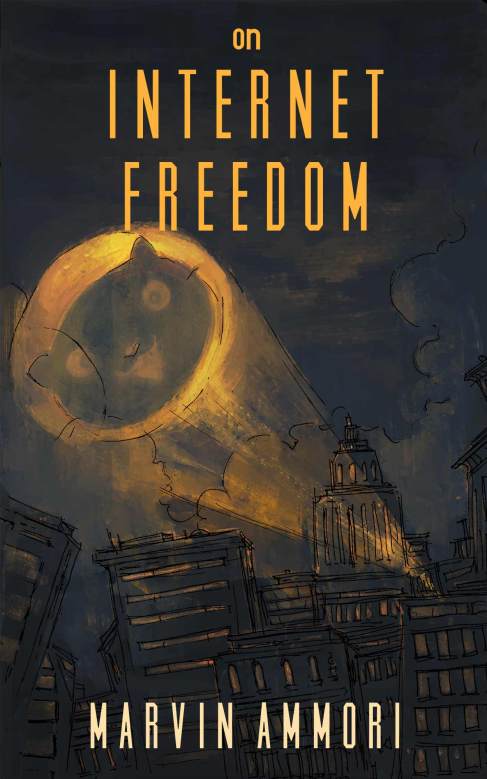Michael Geist (ed.): The Copyright Pentalogy: How the Supreme Court of Canada Shook the Foundations of Canadian Copyright Law (2013)
Filed under book | Tags: · canada, copyright, fair use, internet, law, net neutrality, technology

In the summer of 2012, the Supreme Court of Canada issued rulings on five copyright cases in a single day. The cases represent a seismic shift in Canadian copyright law, with the Court providing an unequivocal affirmation that copyright exceptions such as fair dealing should be treated as users’ rights, while emphasizing the need for a technology neutral approach to copyright law.
The Court’s decisions, which were quickly dubbed the “copyright pentalogy,” included no fees for song previews on services such as iTunes, no additional payment for music included in downloaded video games, and that copying materials for instructional purposes may qualify as fair dealing. The Canadian copyright community soon looked beyond the cases and their litigants and began to debate the larger implications of the decisions. Several issues quickly emerged.
This book represents an effort by some of Canada’s leading copyright scholars to begin the process of examining the long-term implications of the copyright pentalogy. The diversity of contributors ensures an equally diverse view on these five cases, contributions are grouped into five parts. Part 1 features three chapters on the standard of review in the courts. Part 2 examines the fair dealing implications of the copyright pentalogy, with five chapters on the evolution of fair dealing and its likely interpretation in the years ahead. Part 3 contains two chapters on technological neutrality, which the Court established as a foundational principle of copyright law. The scope of copyright is assessed in Part 4 with two chapters that canvas the exclusive rights under the copyright and the establishment of new “right” associated with user-generated content. Part 5 features two chapters on copyright collective management and its future in the aftermath of the Court’s decisions.
This volume represents the first comprehensive scholarly analysis of the five rulings. Edited by Professor Michael Geist, the Canada Research Chair in Internet and E-commerce Law at the University of Ottawa, the volume includes contributions from experts across Canada. This indispensable volume identifies the key aspects of the Court’s decisions and considers the implications for the future of copyright law in Canada.
Publisher University of Ottawa Press, April 2013
Creative Commons License Attribution-Non Commercial Share Alike 3.0
ISBN 9780776608013
480 pages
PDF (single PDF)
PDF (PDF articles)
Marvin Ammori: On Internet Freedom (2013)
Filed under book | Tags: · free speech, internet, law, net neutrality

Every few years, a new book comes out explaining that the future of the Internet is at risk. And every few years, it really is. This book explains why.
In this important new work, On Internet Freedom, leading advocate and First Amendment scholar Marvin Ammori explores why the Internet is continually under threat, what’s at stake in the battle for Internet freedom, and how Internet users can rise up to protect their rights. Written for average Internet users, not just for lawyers and technologists, this book explains these issues and their significance for anyone who has ever sent an email.
Proceeds from this book will be donated to Fight for the Future and Demand Progress.
Publisher Elkat Books, January 2013
PDF (MOBI)
PDF (EPUB, added on 2013-2-5)
Jenna Burrell: Invisible Users: Youth in the Internet Cafés of Urban Ghana (2012)
Filed under book | Tags: · actor-network theory, africa, electronic waste, internet, mass media, net neutrality, networks, spam, web, youth

“The urban youth frequenting the Internet cafés of Accra, Ghana, who are decidedly not members of their country’s elite, use the Internet largely as a way to orchestrate encounters across distance and amass foreign ties–activities once limited to the wealthy, university-educated classes. The Internet, accessed on second-hand computers (castoffs from the United States and Europe), has become for these youths a means of enacting a more cosmopolitan self. In Invisible Users, Jenna Burrell offers a richly observed account of how these Internet enthusiasts have adopted, and adapted to their own priorities, a technological system that was not designed with them in mind.
Burrell describes the material space of the urban Internet café and the virtual space of push and pull between young Ghanaians and the foreigners they encounter online; the region’s famous 419 scam strategies and the rumors of “big gains” that fuel them; the influential role of churches and theories about how the supernatural operates through the network; and development rhetoric about digital technologies and the future viability of African Internet cafés in the region.
Burrell, integrating concepts from science and technology studies and African studies with empirical findings from her own field work in Ghana, captures the interpretive flexibility of technology by users in the margins but also highlights how their invisibility puts limits on their full inclusion into a global network society.”
Publisher MIT Press, 2012
ISBN 0262017369, 9780262017367
Acting With Technology series
236 pages

